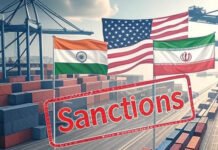INVC NEWS
Colombo : It appears that Sri Lanka, despite being burdened by Chinese debt, has taken a positive stance towards China again. The Sri Lankan Foreign Minister, Ali Sabri, recently visited China and stated that his country would remain neutral in the India-China competition. He emphasized that Sri Lanka does not wish to harm either India or China and urged the two countries to engage in dialogue to resolve their differences. This statement comes at a time of heightened tensions between India and China, particularly after the violent clash in the Galwan Valley.
It is important to note that Sri Lanka had previously defaulted on its debt obligations, with China being a major lender through its Belt and Road Initiative (BRI). Sri Lanka has been seeking debt restructuring from China, but there have been challenges in reaching a resolution. Some analysts suggest that China may be attempting to keep Sri Lanka trapped in a debt trap.
Despite the challenges faced by Sri Lanka, the country has now pledged to support the success of the BRI project within its borders. Additionally, Sabri reiterated Sri Lanka’s commitment to the one China policy, which recognizes the government of the People’s Republic of China as the sole legitimate representative of China.
It is worth noting that geopolitical dynamics can evolve and change over time, and countries often recalibrate their positions based on their perceived interests and priorities. The situation between Sri Lanka, India, and China remains complex and subject to further developments.
Sri Lanka’s shifting stance towards China has drawn attention, especially considering the relatively short time that has passed since the country faced economic challenges due to its debt burden. The visit of the Sri Lankan Foreign Minister to China indicates a renewed willingness to engage with the Chinese government.
Meanwhile, India has been strengthening its ties with the United States as it seeks to counterbalance China’s influence in the region. This has further complicated the geopolitical dynamics in the area, particularly with regards to Sri Lanka’s position. However, Ali Sabri has clarified that Sri Lanka is open for business with any country and does not intend to take actions that would harm either India or China.
The Sri Lankan government’s emphasis on neutrality and its call for India and China to resolve their differences through dialogue reflects a pragmatic approach. Sri Lanka recognizes the potential risks for regional countries that could become inadvertently entangled in the tensions between these two major powers.
The Chinese debt comprises a significant portion of Sri Lanka’s total foreign debt, and the country’s plea for debt restructuring indicates the ongoing challenges it faces. However, Sri Lanka’s recent praise for China and its commitment to the success of the BRI project within its borders suggest a willingness to continue engaging with China despite the previous economic difficulties.
As with any geopolitical situation, the dynamics can evolve rapidly, and it is essential to monitor further developments in the relationship between Sri Lanka, India, and China. The future actions and policies of these countries will shape the regional landscape and have implications for their respective interests as well as those of other countries involved in the region.
















